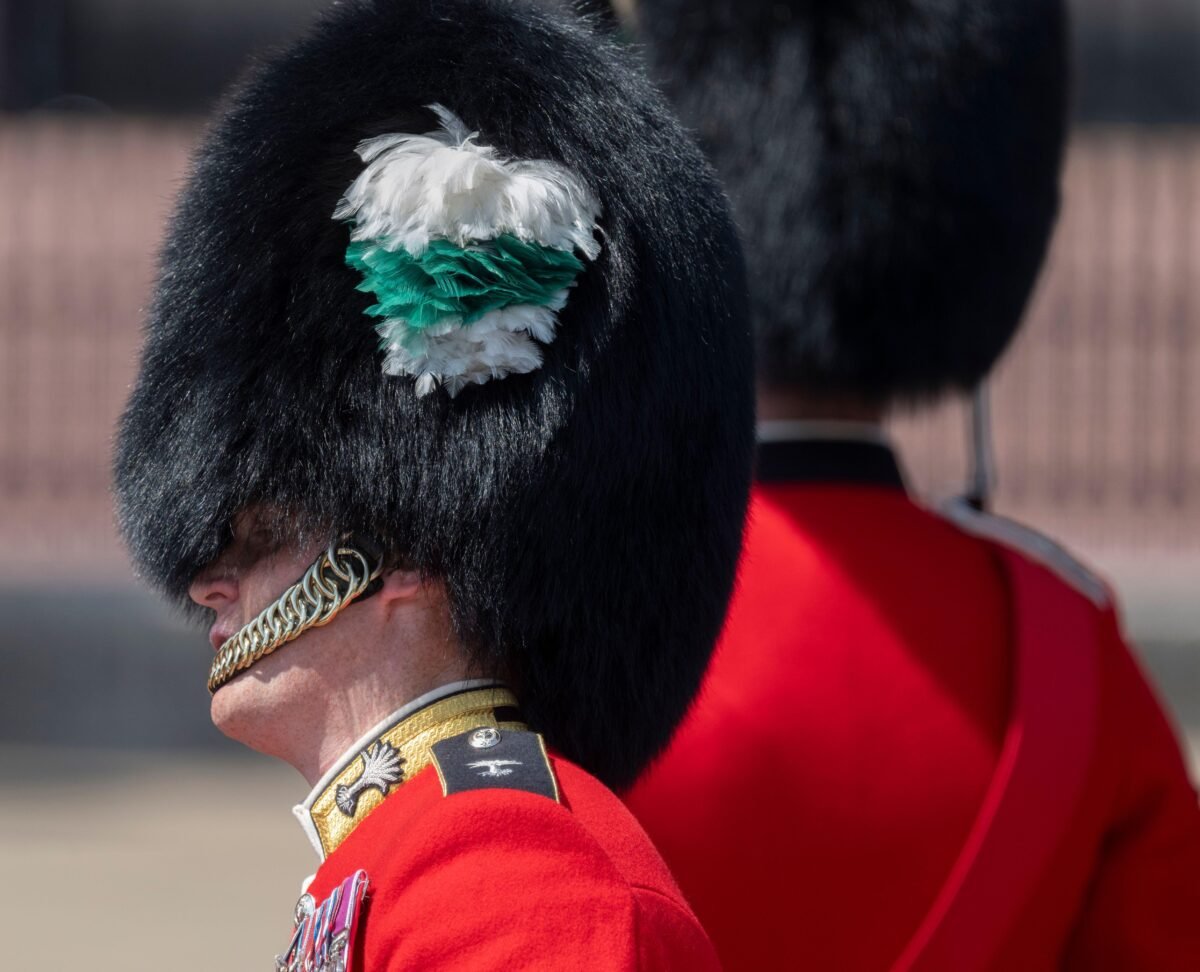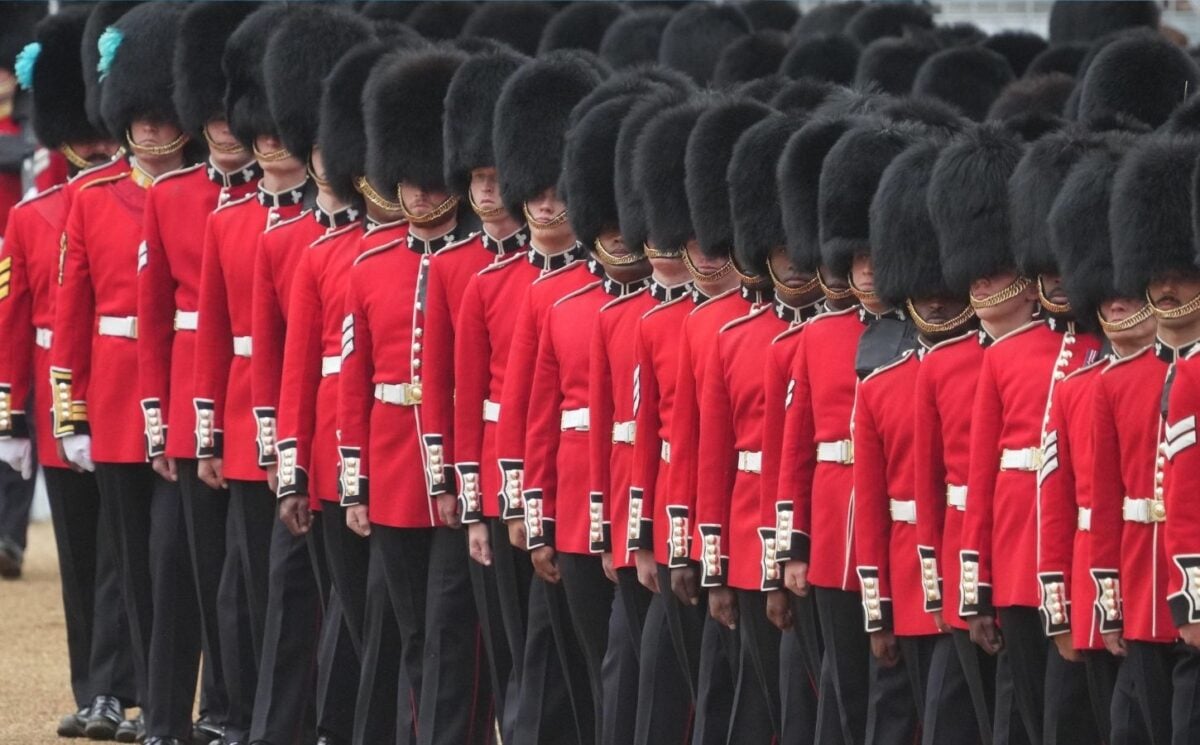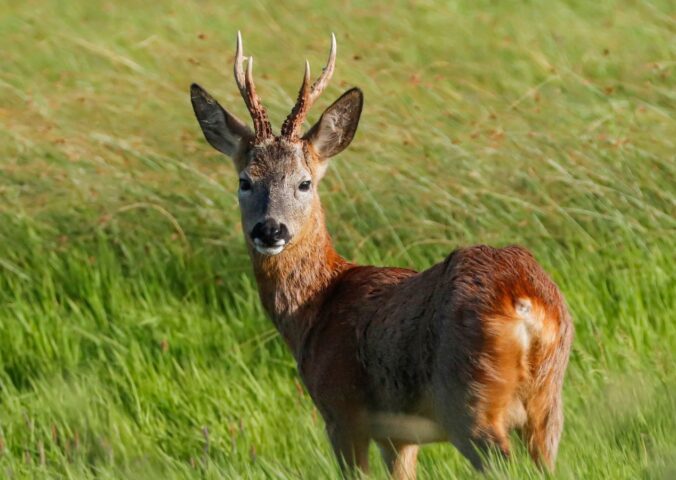The UK government spends more than £2,000 on just one bearskin cap for King’s Guard soldiers, it has been revealed.
Read more: Why The Ministry Of Defence Is Being Sued Over The King’s Guard’s Caps
According to figures from the Ministry of Defence (MoD), prices have soared by 30 percent in a year, bringing the total cost of each cap to £2,040. Over the last nine years, the MoD has spent more than £1 million on caps for the King’s Guard, who are famously stationed outside of royal residences (Buckingham Palace and St. James’s Palace). The King’s Guard uniform has stayed mostly unchanged since the 1800s, and the 19-inch tall black caps are regarded as a key part of it.
The caps, which are made of real fur taken from black bears, have long been controversial. Animal rights group PETA is renewing calls for the government to move towards a faux alternative.
The real cost of King’s Guard caps

PETA has been campaigning against the use of real fur caps for years.
The caps are made from fur from Canadian black bears. The bears will either be shot or ensnared in traps. They may be left to die slowly, meaning they will potentially suffer in pain for days. If a mother bear is caught, her cubs will also die as a result. Some argue that the fur is taken from bears who were killed in “culls” overseen by the Canadian authorities, but PETA disputes this. The organization says that the Canadian government instead issues “tags” to hunters, who are then free to hunt for recreation and sell the animals’ furs.
PETA previously conducted a YouGov poll that found that 78 percent of people in the UK believe that the caps should transition towards faux fur.
Read more: Pamela Anderson Slams UK Government For Killing Up To 1,000 Bears For Queen’s Guard Caps
Alternatives to real fur for the King’s Guard caps
Back in 2022, PETA teamed up with a luxury faux fur brand named Ecopel to create a vegan cap. The organization said at the time that the new caps, as well as being almost indistinguishable from fur, outperformed fur in durability and sustainability tests. They were also reportedly more comfortable and dried more quickly. Ecopel offered to replace the caps free of charge until 2030.
“The humane, high-performing faux fur created by Ecopel gives a nod to tradition while preventing sensitive bears from being viciously slaughtered for their fur,” PETA founder Ingrid Newkirk said.
Despite this, the Conservative government at the time doubled down on the continued use of real fur. There are some hopes now that the Labour government, which came into power earlier this year, could consider a move toward more humane caps.
Stephanie Peacock, who previously served as shadow defence minister when Labour were the opposition party, previously called for a review of the use of real fur in King’s Guard caps. “It is incredibly important that traditions develop and adapt if they are to survive,” she said.
Read more: Simon Pegg And Alesha Dixon Campaign Against Queen’s Guard Bearskin Caps






